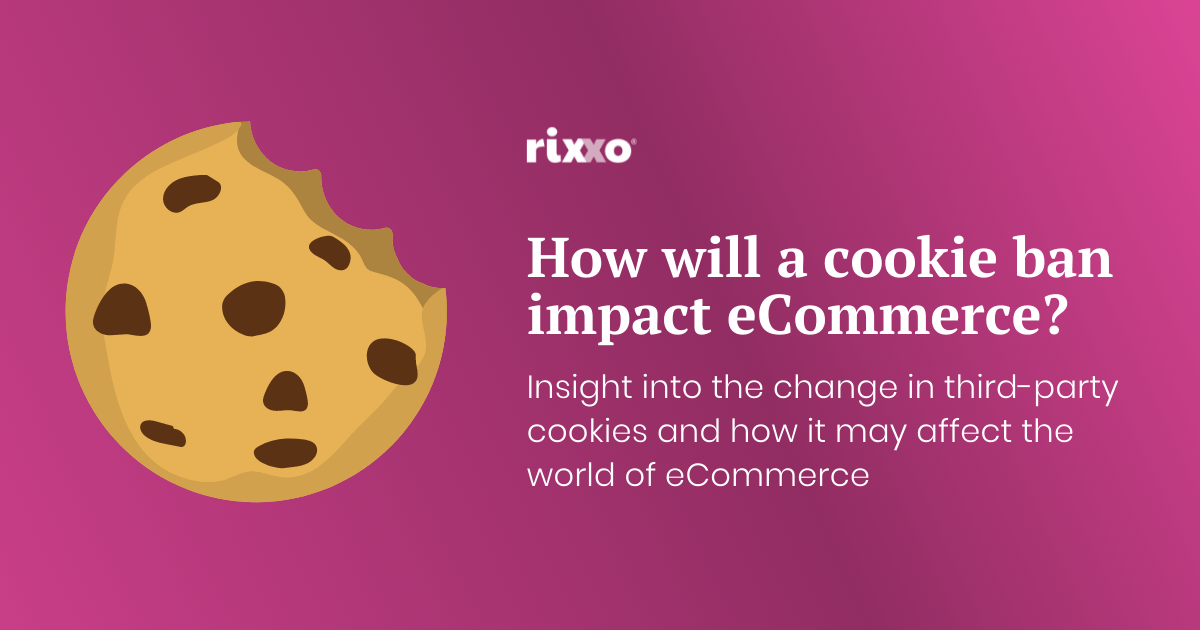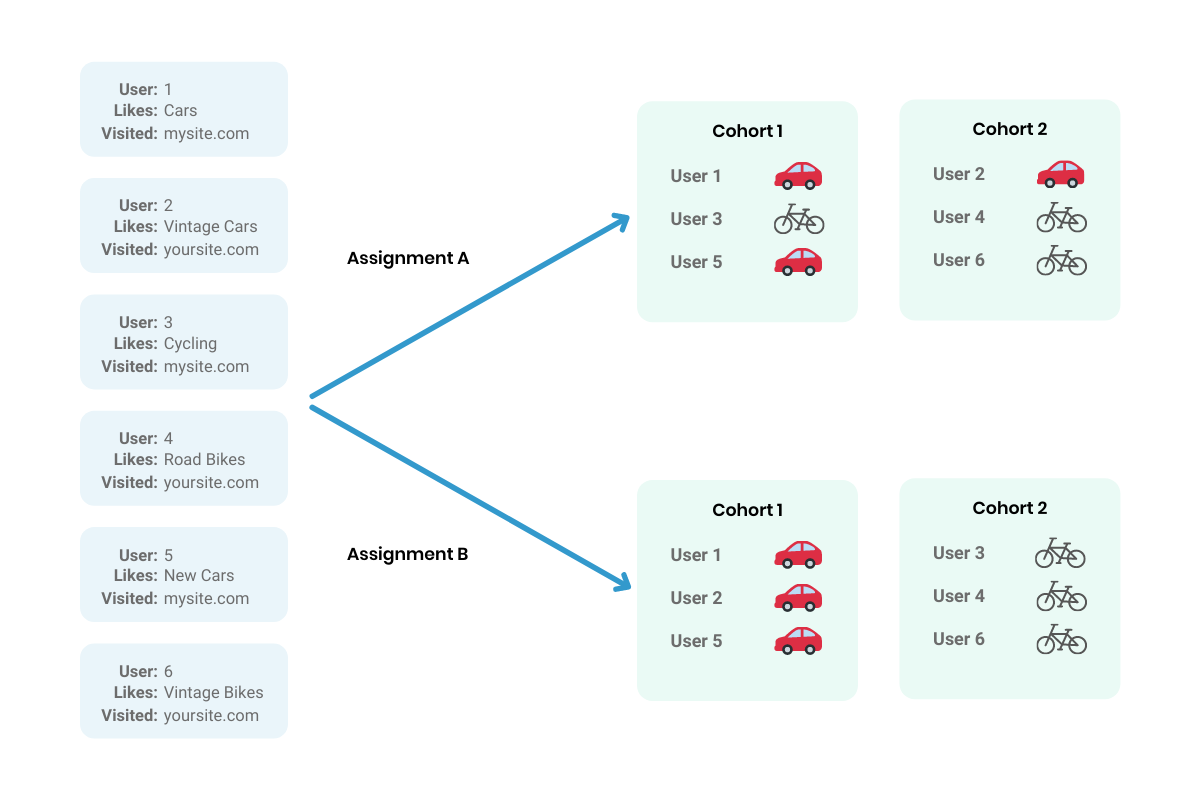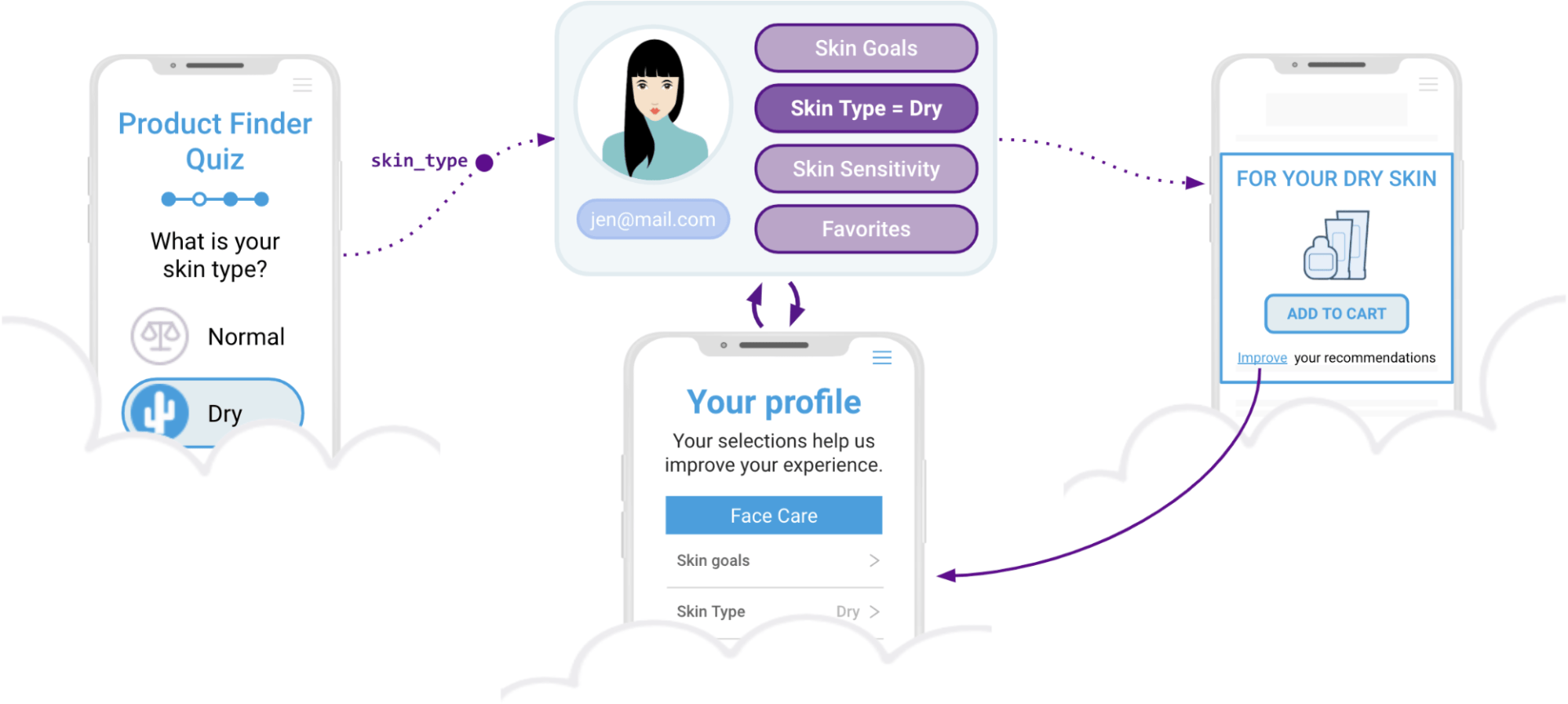The Third Party Cookie Ban: What eCommerce Merchants Need to Know

If you’re an eCommerce merchant, there’s a good chance you’ve heard about the third party cookie ban by now. And if you haven’t, it won’t be long before you do. That’s because Google has finally put a deadline on their browser Chrome blocking third party cookies – January 2023. So what does this mean for your business? We know this is a key topic for many merchants – many of whom rely on third party cookies to run successful marketing and advertising campaigns. In this blog post, we will break down some key questions being asked about the upcoming cookie ban.
The third-party phase-out was initially announced in February 2020, but Google heightened anticipation around it this month when they announced that they won’t be building “alternate identifiers to track individuals as they browse across the web, nor will we use them in our products.”
“The third-party cookie ban is going to have a significant impact on the way that eCommerce advertising and marketing is conducted. Merchants need to start preparing now, by removing any dependency on tracking cookies and collecting their own first-party data. This will allow them to continue reaching their target audience without disruption come January 2023.”
An internet cookie is a file that websites save on your computer. This helps them recognize you and store information about you, so they can tailor their website to suit you better. For example, if you enter your address into an eCommerce checkout page, the site might use a cookie to remember it for next time.
Cookies can be set by a first-party or third-party domain. The first party would be your domain name.
First party cookies are usually quite harmless and make surfing around the web more convenient for us as customers (such as having our login details remembered when we revisit websites).
Third-party cookies are used by advertisers in order to track customer behaviour across different sites – to build up profiles of individual users from multiple sources and then target those users with relevant ads.
Third-party cookies specifically are created and placed by websites other than the website you’re visiting.
Session cookies last for as long as your browser is open and are used to track the pages you visit while you’re browsing. They aren’t stored on your computer permanently but disappear when you close your browser.
Are third-party cookies in Chrome ending? The short answer is Yes.
The third-party cookie ban is a policy that will come into effect in January 2020, whereby Google Chrome (and other browsers) will block all cookies set by third-party domains – including advertisers and marketing companies. This means that any advertiser or marketer who uses cookies to track users’ behaviour across different websites will no longer be able to do so.
Google has introduced the third-party cookie ban in order to increase user privacy. They believe that by blocking cookies set by third-party domains, users will be better protected from being tracked and profiled without their knowledge or consent.
The implications of the third-party cookie ban for eCommerce are significant. Advertisers and marketers who use cookies to track customer behaviour across different websites will no longer be able to do so, which could lead to a decline in conversion rates as well as decreased ROI on advertising campaigns.
Third-party cookies have already been banned in certain browsers. Apple has long spoken out about the importance of user privacy, so it’s no surprise that Safari, the company’s browser, restricted tracking in 2017, and Firefox, which has built its reputation around user privacy, completely banned them in 2019. However, Google’s Chrome browser is on course to disallow third-party cookies soon.
The nature of B2B eCommerce websites and the sales process could mean a different type of impact. Yes, a lot of B2B businesses operate much like a B2C but many of the businesses we work with have much more of a D2C or D2B structure. If your B2B eCommerce website is more of an order and management portal than a marketplace you may be less affected. The greatest impact is going to be felt by those B2B businesses whose marketing relies heavily on third-party cookie-driven marketing tools.


Google has proposed a new alternative to third-party cookies, called FLoC (or Federated Learning of Cohorts). This technology will enable advertisers to continue serving targeted ads by grouping users into ‘cohorts’ based on their interests. However, there are concerns that this could have an impact on user privacy and personalisation.
Alternative tracking methods such as fingerprinting or browser fingerprinting may also be used in the wake of the ban. This involves collecting information about a user’s device for identification purposes – such as screen resolution, operating system and extensions installed – instead of using cookies. One potential benefit is that this method can work across multiple devices at once. However, it could make it harder for users to opt-out of tracking.
What can you do to prepare for the changes?
“Developing strong relationships with customers has always been critical for brands to build a successful business, and this becomes even more vital in a privacy-first world.” ~ Google
The eCommerce brands and businesses that come out of the third party cookie ban on top will be those who were already challenging the norm and behaving “differently”. Avoid putting all of your eggs in one basket, try new things and be yourself.
There are a number of steps you can take to prepare your eCommerce business for the third-party cookie ban:
Remove any dependency on tracking cookies in your marketing strategy. You should consider moving away from using third-party cookies as part of your advertising and marketing campaigns, in order to ensure that they will be effective after January 2023.
Third-party cookies have been around since the early days of the internet, but they’re quickly becoming a thing of the past. In January 2023, Google’s Chrome browser will start blocking all cookies set by third-party domains – including those used. Some browsers have already started doing this so you are already feeling the pinch.
There could be a temptation here to wait, right up until the deadline and react. If you can make a move to remove some or all of them from your site before the deadline you will find you are more prepared and your eCommerce site will transition more smoothly.
Communicate the changes with the customers and employees
As with any major change, workflows may be impacted, which can result in inefficiencies and/or wasted spending. Make sure to communicate the changes with your customers and employees so that everyone is on the same page.
Why not also update your Cookie Notice Bar with a statement confirming that there are no third-party cookies on your site and that you do not share data with any other parties (if this is the case).
Prepare for a decline in conversion rates
There is likely to be a decline in conversion rates as a result of the third-party cookie ban, as users may be less likely to trust websites that don’t appear to respect their privacy. You should prepare for this by increasing your budget for marketing campaigns, in order to ensure that you continue to reach your target audience.
Collect your own data – this is called First-Party Data
Use first-party data instead of relying on third-party tools. First-party data is information collected by an advertiser or marketer about their own customers, who have opted in to receive promotions and offers from them (as opposed to being tracked across multiple websites). By collecting more information about their own existing customers – such as how often they visit the website, what products they like and when key dates are for them.
- Build your email list (and SMS)
- Track behaviours on your website
- Use marketing automation tools such as Hubspot that can rotate form fields to collect different information each time a user interacts with you.
- Use insights and information from your social media platforms
- Collect zero-party data with a variety of experiences optimised for key moments in customer journeys – quizzes, next best questions, discovery moments and progressive forms.
- Undertake some market research and customer panels
- Analyse data from surveys and customer feedback


Can we help with your First & Zero Party Data?
If you need help getting your website ready for the upcoming changes, get in touch.
Incentivise your users to log in to your website to make first-party data gathering easier
A mantra at Rixxo. Getting your users to log in to your website helps you identify them, exactly them. There is no ambiguity at all.
Customers are more inclined to log in if they wish to access something just available within their account – such as modifying their personal information or checking the status of an order. However, you should strive for your consumers to log in every time they visit your website in order to obtain the full value of first and zero party data.
One smart way to do this could be to offer exclusive content or discounts only to users who are logged in.
Our B2B eCommerce package at all levels support “per customer” pricing and discounts as well as visibility of content depending on customer groups


Another easy concept is to provide consumers with a wishlist function. One wishlist is lovely, but giving customers the option to make numerous wishlists is even better – they’ll be able to arrange their future purchases depending on certain projects, events, or even keep track of potential gift ideas.
We call this feature Project Lists – it’s available as part of our B2B eCommerce package.
The more time and effort a user puts into a feature like this, the more likely they are to return – they won’t want to start over on another site, for example.
Launch a Data Preference Portal to get Zero Party Data
What better way to collect and refine data than just to let a customer log in and do it. This is called Zero Party Data. Zero-party data is collected directly and independently from consumers by them. Unlike third-party data, which is gathered by aggregators and ad platforms via third-party cookies and shady tracking methods, zero-party data is collected voluntarily and immediately from customers.
Our friends over at wyng.com have created a Zero Party Data API. A world first. It helps brands manage and deliver their zero party data when it’s need, where it’s needed.


So what about First Party Cookies? Are they banned? Google doesn’t have plans to block first-party cookies – in fact, first-party cookies are “vital” – great news for websites that collect lots of data on their customers via first-party cookies and eCommerce websites that need them to operate.
Remember: First party cookies are usually quite harmless and make surfing around the web more convenient for us as customers (such as having our login details remembered when we revisit websites).
Finally the good stuff eh!!
To see cookies on a website:
- Make sure developer tools are turned on for your browser.
- Right-click on the page and choose Inspect.
- Find the applications tab and under Storage, you will see Cookies
In our video example here you will the first-party cookie on theverge.com has a domain of theverge.com. A first-party cookie.
When the acceptance of the cookie policy is clicked the site begins to load more first-party cookie elements (non-essential) and then a collection of third-party cookies appear. If you check the domains of these you will see they are very different to the domain of the website we are on.
In this video you will see the same journey as carried out above except this time, we are going to go Incognito and tell the browser to block third-party cookies.
At the point of accepting the cookie notice, the cookie folders are all created on the left-hand side under Storage again but when we click on those folders they are all empty. All but the cookie from theverge.com have been removed.
When the cookie ban arrives this is going to be the default behaviour from the Google Chrome browser.
In Summary
The third-party cookie ban is coming, and it’s going to have a significant impact on the way that eCommerce advertising and marketing is conducted. Merchants need to start preparing now, by removing any dependency on tracking cookies and collecting their own first-party data. This will allow them to continue reaching their target audience without disruption come January 2023.
If you need help getting your website ready for the upcoming changes, get in touch. Our team of experts can assist you with all your cookie needs so that your business doesn’t suffer when the ban comes into effect.


Can we help with your First & Zero Party Data?
If you need help getting your website ready for the upcoming changes, get in touch.
